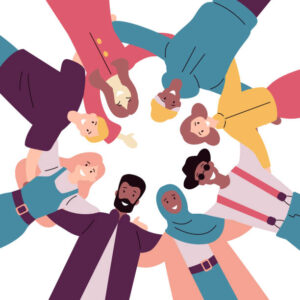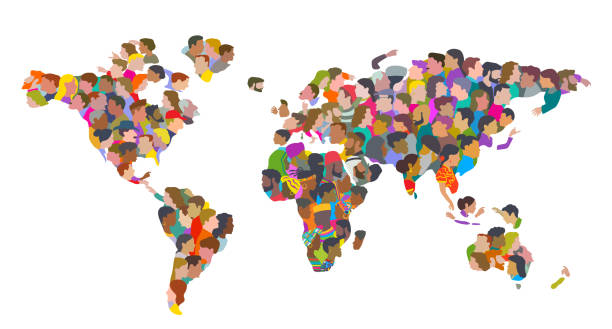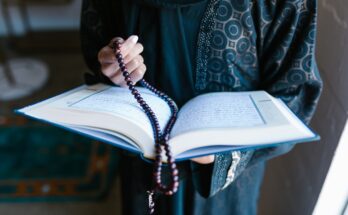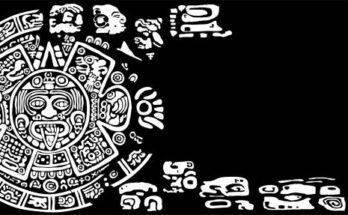In the intricate web of global affairs, the role of religion in shaping international relationships has been a persistent and potent force. Religion, often considered a deeply personal and spiritual aspect of human life, extends its influence far beyond individual belief systems. The interplay between religious ideologies and international relations has manifested in various forms, from shaping diplomatic alliances to triggering conflicts. This article aims to delve into the multifaceted role of religion in international relationships, exploring its impact on diplomacy, conflict resolution, and the formation of global alliances.
Religion as a Cultural and Ideological Foundation
 (Photo from iStock)
(Photo from iStock)
Religion serves as a cultural and ideological foundation for many societies around the world. It plays a crucial role in shaping the values, norms, and moral frameworks that guide individuals and communities. Nations with a shared religious heritage often find themselves bound by a common cultural thread, which can foster a sense of solidarity and kinship. This shared cultural background can act as a catalyst for diplomatic relations, facilitating communication and understanding between nations.
For instance, the influence of Christianity has historically played a pivotal role in shaping the cultural and ethical foundations of many Western countries. Shared Judeo-Christian values have contributed to the formation of alliances, such as NATO, where member countries often cite common religious and cultural bonds as a basis for cooperation. Similarly, Islamic nations often find common ground based on shared religious principles, fostering diplomatic ties and collaborations in areas such as trade and security.
Diplomacy and Soft Power
Religious institutions and leaders frequently serve as diplomatic intermediaries, employing their influence to facilitate dialogue and cooperation between nations. The Vatican, as the spiritual center of the Catholic Church, has been an influential diplomatic actor, engaging in mediation efforts and promoting peace in various international conflicts. The Pope’s role as a moral authority allows the Vatican to wield significant soft power in diplomatic circles.
Soft power, a concept coined by political scientist Joseph Nye, refers to the ability of a nation or institution to shape the preferences of others through appeal and attraction rather than coercion. Religious institutions often embody soft power, influencing international relations by appealing to shared values and ethical principles. Countries with a strong religious identity can leverage this soft power to enhance their diplomatic efforts, fostering positive relationships and mitigating conflicts.
Religious Conflict and International Relations
 (Photo from iStock)
(Photo from iStock)
While religion has the potential to foster unity, it also has the power to ignite conflict and strain international relationships. Throughout history, religious differences have fuelled territorial disputes, political instability, and violence. The Israeli-Palestinian conflict, deeply rooted in religious and historical narratives, exemplifies how religious identities can become intertwined with geopolitical struggles, complicating international efforts for resolution.
Religious extremism and terrorism further underscore the complex relationship between religion and international security. Groups like ISIS (Islamic State of Iraq and Syria) have exploited religious ideologies to justify acts of violence and terrorism. The global impact of such extremist movements necessitates international collaboration in addressing the root causes of radicalization and developing strategies for counterterrorism.
Moreover, the rise of religious nationalism in various parts of the world has contributed to tensions and conflicts. India, for example, has witnessed a surge in Hindu nationalism, leading to social and political unrest. These internal dynamics can have ripple effects on international relations, as neighbouring countries respond to the shifting political landscape and the potential implications for regional stability.
Human Rights and Religious Freedom
The intersection of religion and international relations extends to the realm of human rights, with religious freedom being a central component. Violations of religious freedom can strain diplomatic ties and lead to international condemnation. Nations that prioritize religious pluralism and protect the rights of religious minorities are often viewed more favourably on the global stage.
China’s treatment of Uighur Muslims, for instance, has sparked international concern and condemnation. The Chinese government’s policies in Xinjiang, including mass detentions and restrictions on religious practices, have prompted responses from the international community, with many nations and organizations calling for accountability and action to protect religious freedom.
The Role of Religion in Global Alliances
Religion also plays a role in shaping global alliances and coalitions. The Organization of Islamic Cooperation (OIC), comprising predominantly Muslim-majority countries. Serves as a platform for cooperation on political, economic, and social issues. The alliance is rooted in shared religious and cultural ties, providing member states with a forum to address common challenges.
Similarly, the influence of religious affiliations is evident in the formation of alliances beyond the Islamic world. The historical alliances between predominantly Christian nations in Europe and North America. As seen in organizations like the European Union and NATO. Underscore the role of shared religious and cultural values in shaping geopolitical alliances.
Challenges and Opportunities
 (Photo from iStock)
(Photo from iStock)
While the role of religion in international relationships presents both challenges and opportunities. Recognizing its complexity is essential for fostering effective global cooperation. Navigating the intricate interplay between religious identities, cultural values, and diplomatic endeavours requires a nuanced and inclusive approach.
- Promoting Interfaith Dialogue: Encouraging interfaith dialogue can be a powerful tool for building understanding and trust. Between nations with diverse religious backgrounds. Interfaith initiatives can facilitate conversations on common values, ethical principles, and shared goals, fostering a sense of unity and cooperation.
- Addressing Religious Extremism: Tackling the root causes of religious extremism requires a comprehensive and collaborative approach. International efforts to address socio-economic disparities. Promote education, and counter radicalization can contribute to mitigating the influence of extremist ideologies. That fuel conflicts and threaten global security.
Conclusion
The role of religion in international relationships is a dynamic and multifaceted phenomenon that permeates various aspects of global affairs. While religion has the potential to foster unity and cooperation, it can also contribute to conflicts and diplomatic challenges. Understanding the complex interplay between religious identities, cultural values. And geopolitical dynamics is essential for navigating the intricacies of international relations.
As the world becomes increasingly interconnected, recognizing the influence of religion on the global stage is imperative. Eventually, for building a more inclusive and cooperative international community.
Reference:
Elgar Online
Want to know about creation of the religion, click on the link below:
How Can Religion Be Created? Exploring the Origins and Evolution




